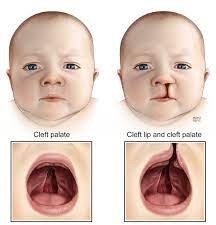Aydan Miller is an 8-year-old with a history of Type 1 Diabetes. Current medications are: Glargine (Lantus; Insulin 5 units subcutaneous at bedtime Insulin lispro (Humalog) 1 unit per 50 grams of carbohydrates eaten. Aydan has just eaten 150 grams of carbs for lunch at school.
Which of the following medications will the nurse prepare to administer to Aydan?
3 units of his prescribed long acting insulin.
3 units of his prescribed rapid acting insulin.
5 units of his prescribed long acting insulin.
150 units of prescribed rapid acting insulin.
The Correct Answer is B
According to the given information, Aydan's insulin lispro (Humalog) dosage is 1 unit per 50 grams of carbohydrates eaten. As Aydan has just consumed 150 grams of carbs for lunch, we can calculate the insulin dose as follows:
Insulin dose = Carbohydrates eaten / Insulin-to-carbohydrate ratio Insulin dose = 150 grams / 50 grams/unit
Insulin dose = 3 units
Therefore, the nurse should prepare to administer 3 units of Aydan's prescribed rapid-acting insulin (Insulin lispro) to cover the carbohydrates he consumed for lunch. The long-acting insulin (Glargine) is typically given at bedtime to provide a basal insulin level and is not directly related to meal coverage.
Nursing Test Bank
Naxlex Comprehensive Predictor Exams
Related Questions
Correct Answer is C
Explanation
Suctioning secretions away from the suture line helps maintain the surgical site's cleanliness and promotes healing. It helps prevent accumulation of mucus or oral secretions that can interfere with the healing process and increase the risk of infection. The nurse should use a gentle suctioning technique to avoid disrupting the surgical site.
Applying Neosporin to the surgical site is not typically recommended unless specifically prescribed by the healthcare provider. It is important to follow the provider's instructions regarding wound care.
Applying elbow immobilizers when not being held is not necessary for cleft lip surgery. Elbow immobilizers are usually used in other surgical procedures or for other reasons, such as preventing contractures.
Feeding increased amounts of formula to prevent weight loss is not an appropriate intervention for the first few days after cleft lip surgery. The surgical site may be sensitive, and the child may experience difficulty with feeding initially. The nurse should provide guidance and support for feeding techniques appropriate for the child, which may include using specialized bottles or positioning techniques.

Correct Answer is B
Explanation
Pernicious anemia is a type of anemia that occurs due to a lack of intrinsic factor, a protein necessary for the absorption of vitamin B12 (cobalamin) in the digestive system. As a result, patients with pernicious anemia are unable to absorb sufficient amounts of vitamin B12 from dietary sources. The treatment for pernicious anemia involves regular administration of cobalamin (B12) injections to bypass the impaired absorption and provide the necessary vitamin B12 directly.
Oral ferrous sulfate tablets are not the appropriate treatment for pernicious anemia. Ferrous sulfate is a form of iron supplement used to treat iron deficiency anemia, which is different from pernicious anemia.
Iron dextran infusions are also not indicated for pernicious anemia. Iron dextran is used for iron replacement therapy in cases of iron deficiency anemia, but it does not address the underlying issue of vitamin B12 deficiency in pernicious anemia.
Routine blood transfusions may be necessary in some cases of pernicious anemia, especially if the patient is severely anemic. However, the primary treatment for pernicious anemia is cobalamin (B12) injections, which provide the necessary vitamin B12 that the patient is unable to absorb.
Whether you are a student looking to ace your exams or a practicing nurse seeking to enhance your expertise , our nursing education contents will empower you with the confidence and competence to make a difference in the lives of patients and become a respected leader in the healthcare field.
Visit Naxlex, invest in your future and unlock endless possibilities with our unparalleled nursing education contents today
Report Wrong Answer on the Current Question
Do you disagree with the answer? If yes, what is your expected answer? Explain.
Kindly be descriptive with the issue you are facing.
